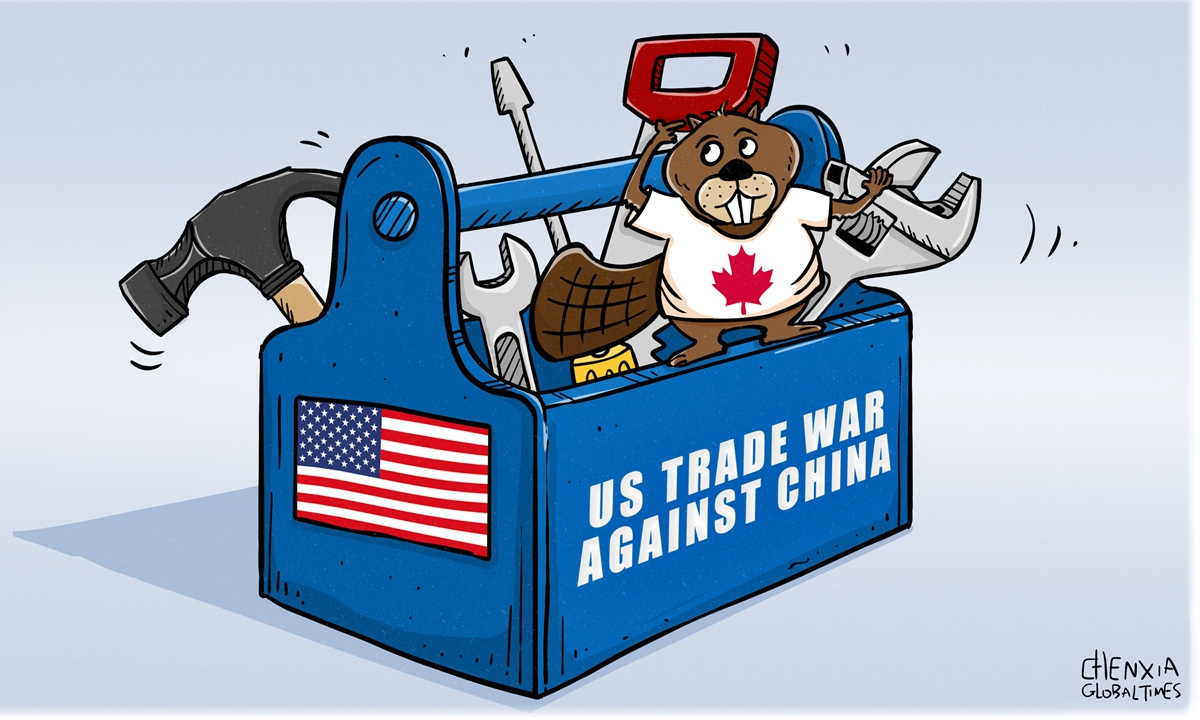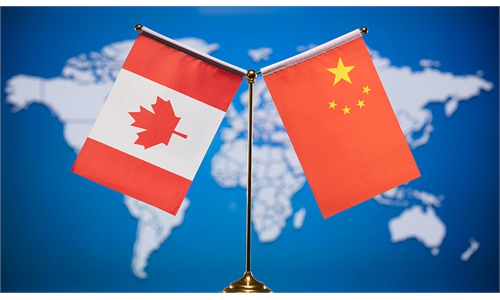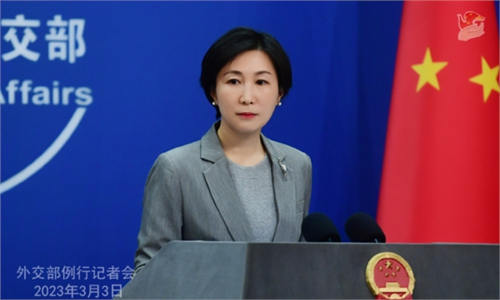
Illustration: Chen Xia/Global Times
Just before US President Joe Biden's official visit to Canada that is scheduled to begin on Thursday, the Wall Street Journal claimed in a report that "Biden's push to counter China steers EV investments to Canada," suggesting that multinational companies are lured by government incentives, access to raw materials and cheap renewable energy to invest billions of dollars into the electric vehicle manufacturing sector in Canada.
Such claims are apparently aimed at highlighting the benefit for Canada to join in the US' "decoupling" push against China. With some high-profile investment deals, Canada does appear to be a direct beneficiary. Yet the question remains: can such a trend of growing investment into Canada's EV manufacturing sector, which is clearly triggered by protectionist moves that run counter to market rules and economic laws, be sustained in the long run?
While multinational companies like Volkswagen cited reasons such as access to raw materials and clean energy, it is undeniable that US protectionist policies are the biggest cause behind the investments in the Canadian EV manufacturing sector. In the short term, Canada may somehow benefit from the US' "decoupling" strategy by attracting investments, but it also makes the Canadian economy increasingly dependent on the US, which will further push Canada off the path of economic independence.
As politicians from the US and some of its Western allies have stepped up their "decoupling" rhetoric against China under the guise of "reducing dependence," Canada is keen on jumping on the bandwagon and, with its advantage in supplies of critical minerals for EV batteries, posing itself as an ideal destination for EV investments.
In the meantime, the US Inflation Reduction Act (IRA) has given Canada a huge advantage compared with countries in Asia and Europe in terms of EV manufacturing, because the IRA offers consumers tax credits for EV products made in North America. However, the US act has sparked anger from many countries, including US allies in Europe and Asia. It remains a thorny dispute between the EU and the US, which some have suggested could escalate into a trade war.
Yet, it is highly questionable how far Canada's ambition in EV manufacturing will go. Without its own industrial or market advantages, it is difficult for any country to cultivate a competitive EV industry chain only with the support and protection of the government.
Even from the perspective of supply chain cooperation in North America, it is hard for Canada to provide long-term and sustained support to the US when it comes to EV manufacturing. Indeed, a sluggish supply chain across the Canadian vehicle manufacturing sector has already caused supply shortage of new vehicles for some time, which experts warn may continue in 2023, with prices surging sharply, according to local media reports.
If anything, the situation is enough to show that the development of the auto industry in Canada is problematic, and that there is no sign of these problems being solved. Fundamentally, Canada has neither the labor force nor the supporting industrial capacity or supply chains needed for developing the EV sector.
Moreover, even the Wall Street Journal report conceded that Canada is among the most expensive countries in the world to build cars and the highest-cost market for car assembly in the North American free-trade zone. Whether it is the prices of labor or products, Canada is at an apparent disadvantage when compared with the world's major car-producing countries and regions, let alone compared with China.
The development of the manufacturing sector has its own law. Any adjustment or "decoupling" that goes against the law will be eventually punished by it. The logic applies to the US and its allies.
It is understandable that Canada may want to revitalize its industrial sector by forging closer ties with the US, but the problem is that the US' "decoupling" push has become a strategic move targeting China both politically and economically. Tying itself to the US chariot and decoupling from China, the world's largest manufacturing power, Canada's economic interests could be badly hurt.
What's more worrisome is that once Canada is tied to the US chariot, it may likely carry out unreasonable competition with China by adopting a policy approach of raising trade barriers. This is because China's EV batteries sector is also developing fast and is already leading the world. Therefore, we need to be on guard against Canada and other Western countries adopting unreasonable and illegitimate trade policies targeting China's EV batteries and other products.



